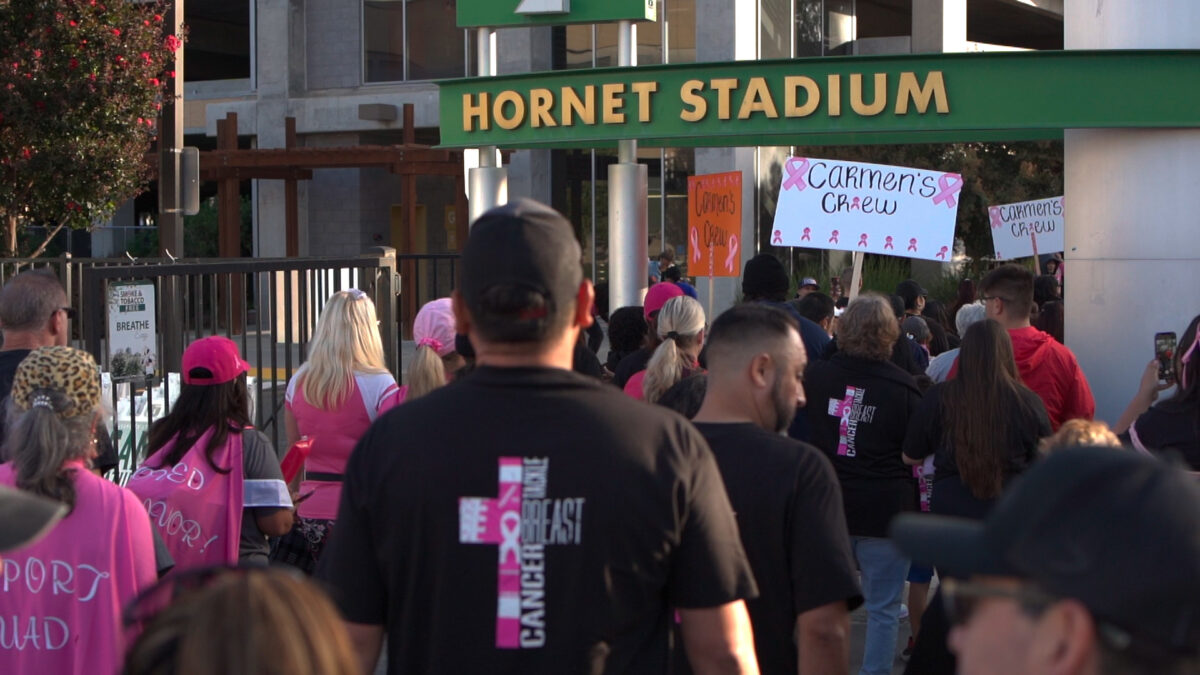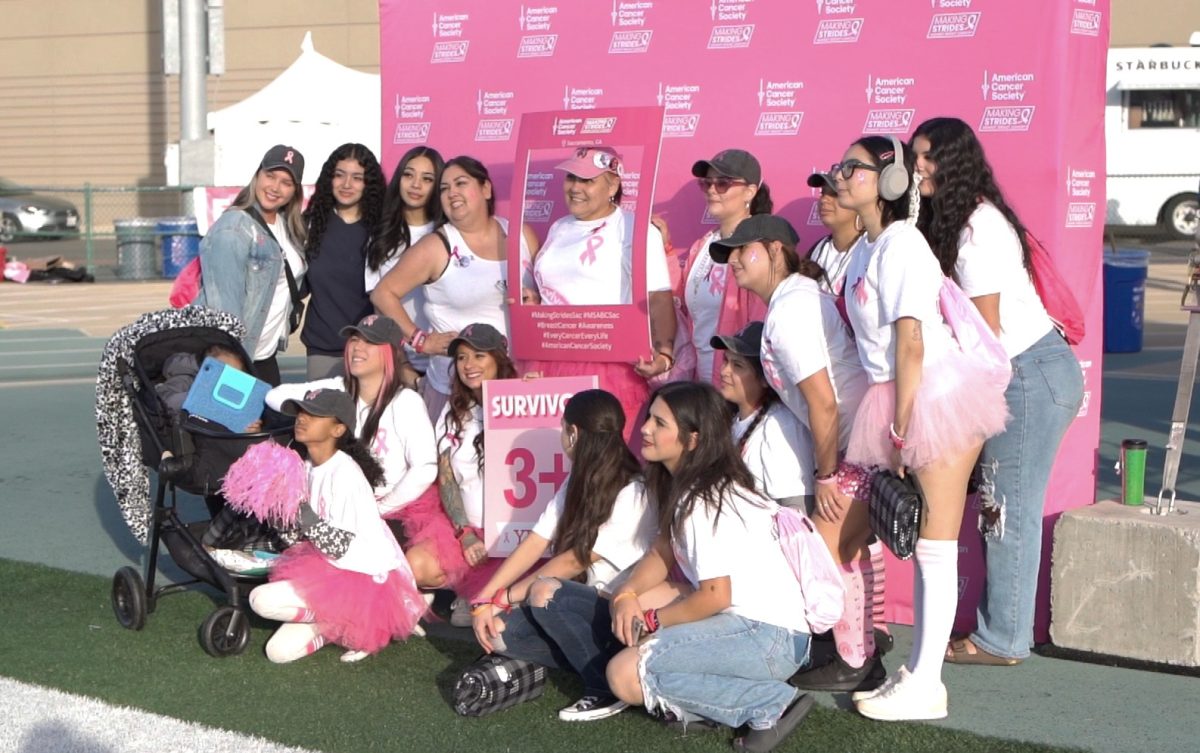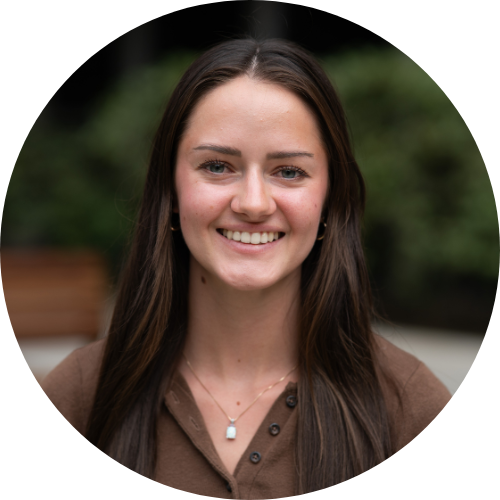Over 200,000 women in the U.S. are diagnosed with breast cancer each year, with over 40,000 losing that battle yearly. According to the American Cancer Society, over 30,000 California women are expected to be diagnosed with cancer in 2023.
Despite these statistics, there are stories of hope and courage to be told.
One of these stories took place at Sacramento State, where 28,000 people flooded Hornet Stadium in a vast sea of pink on Sunday to participate in American Cancer Society’s Making Strides Against Breast Cancer 27th annual walk to support breast cancer research and programs.
RELATED: Mature Learner Meet & Greet series caters to older students
Sunday’s five-mile walk, which started at Hornet Stadium and weaved through campus, raised almost $430,000 to help support breast cancer patients, survivors and caregivers. According to the American Cancer Society, Making Strides is the biggest breast cancer fundraiser in Northern California and the largest breast cancer movement in the nation.
Randy Smedley, who beat breast cancer almost 15 years ago, is now a volunteer and co-chair for the Making Strides event. This is her 14th year participating in the Making Strides Against Breast Cancer Walk. She said attending the charity event is one of the most uplifting experiences.
“The first year I came out, I came out all by myself and a gentleman said, ‘See all these people? All those people got your back,’ and it made me want to do that for someone else,” Smedley said.
She described the feeling of her initial diagnosis as slipping into “fight or flight” mode. As the grandmother of a large family, Smedley said they motivated her to fight.
“Everybody comes to my house for everything, so we just have to get rid of this,” Smedley said. “I don’t think I ever had thoughts that I could lose my life, I was like ‘Well where are we gonna hunt easter eggs and who’s gonna do Christmas?’”
Other attendees like Kim Coleman-Berger and Jennifer Berger-Coleman were there to honor their late friend who lost her battle with breast cancer.
“We’re here as Kimmie’s Krew, in her name and raising money for this awesome event,” Coleman-Berger said. “We’re here to honor her name and make sure no one else has to die like she did.”
Coleman-Berger said the money raised by Making Strides not only goes toward breast cancer research but also helping patients get rides to chemotherapy treatment, lodging and support for their families.
This is the first year Making Strides has taken place at Sac State, after moving from its long-established location at The State Capitol in downtown Sacramento.
Sonya Silva, event organizer and senior development manager, said the switch was prompted by feedback from participants of the event in an effort to provide a more family-friendly atmosphere.
“I just kept coming back to Sac State, it’s centrally located and it’s such a beautiful campus,” Silva said. “It seemed like a really great opportunity to bring awareness to some of our younger community members by engaging students.”
Asia Burns, a fourth-year exercise science major, volunteered to help with the event along with her Sigma Gamma Rho sorority. She said her favorite part about the fundraiser is getting to see everyone’s faces in the morning and how excited they are to be out here.
“Everyone out here, it’s just the love that they really appreciate,” Burns said. “A lady just told me, ‘Thank you for being out here at 5:30 in the morning,’ I’m here for them.”
Silva said 100% of the funds raised from this event will go toward breast cancer research and the programs and services that support breast cancer patients, survivors and caregivers.
Cheryl Boyes, Sac State’s assistant athletic director of community relations and special events said the Making Strides fundraiser exposes the campus to a great cause.
“We take the opportunity to partner with community events like this and community causes like this because breast cancer probably touches every single one of us,” Boyes said.
Screening regularly helps to detect the early stages of breast cancer. Though screening does not prevent breast cancer, it can catch early signs of cancer, which is when treatment is most effective. To learn more information about breast cancer prevention, screening and other resources visit American Cancer Society.

























































































































